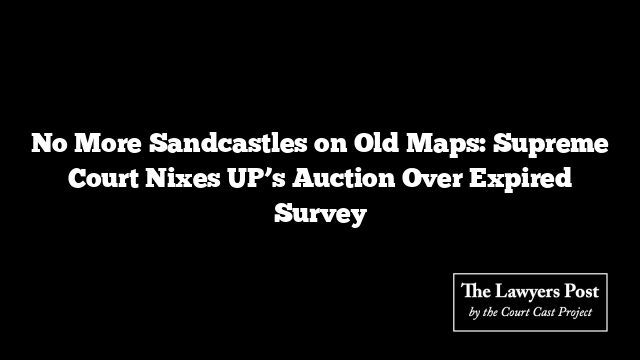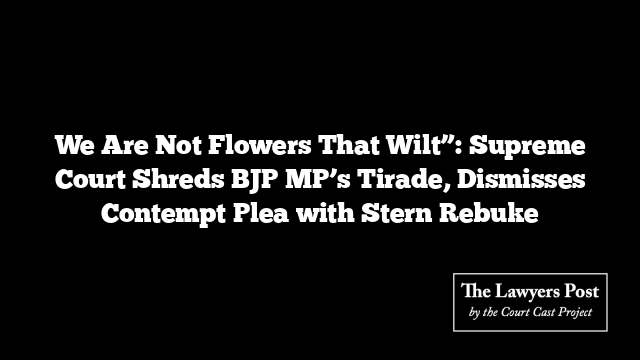In a firm reminder that environmental governance can’t run on expired paperwork, the Supreme Court on Wednesday scrapped the Uttar Pradesh government’s e-auction for sand mining leases—an exercise built precariously atop a lapsed 2017 District Survey Report and an unapproved draft from 2023.
The Court didn’t mince words: under the Environment Protection Act, 1986, and the 2016 update to the Environmental Impact Assessment Notification, no Environmental Clearance (EC) can be granted without a current, officially sanctioned District Survey Report (DSR). Drafts, they said bluntly, are as good as non-existent in the eyes of the law.
The case revolved around UP’s attempt to breathe new life into a dead DSR—five years past its shelf life—and lean on a draft version still mired in bureaucracy. The National Green Tribunal had already flagged the move as illegal, and the Supreme Court agreed without hesitation.
Justices PS Narasimha and Manoj Misra upheld the NGT’s ruling, making it crystal clear: a DSR is not optional, and neither nostalgia nor anticipation counts. The environment isn’t a place for shortcuts.
“The position of ecology is ever-evolving,” the bench noted. “That’s why the law mandates a fresh DSR every five years. You cannot use outdated assessments to greenlight fresh extraction.” Citing the precautionary principle, the Court emphasized that an expired DSR holds no legal weight, and relying on it undermines the very foundation of responsible environmental planning.
In their detailed judgment, the Court broke it down:
- A DSR is critical for informed decisions on mining and must be prepared strictly as laid out in Appendix X of the EIA rules.
- Only a valid, finalized DSR—not a draft, not a relic—is fit for consideration.
- Project appraisals by local environmental authorities (DEIAA and DEAC) must be anchored in real-time data from a live DSR.
- Every district must update its report every five years, no exceptions.
- These updates should be public, placed online for at least 21 days, and a copy must rest at the Collectorate for transparency.
In short: sand mining auctions can’t move forward on ghost documents. The appeal was dismissed, and with it, the state’s sand scheme was buried beneath its own procedural failings.
The case—State of Uttar Pradesh & Anr. vs. Gaurav Kumar & Ors.—now stands as a stern precedent: if you’re going to dig into the earth, your paperwork better be rock solid.





